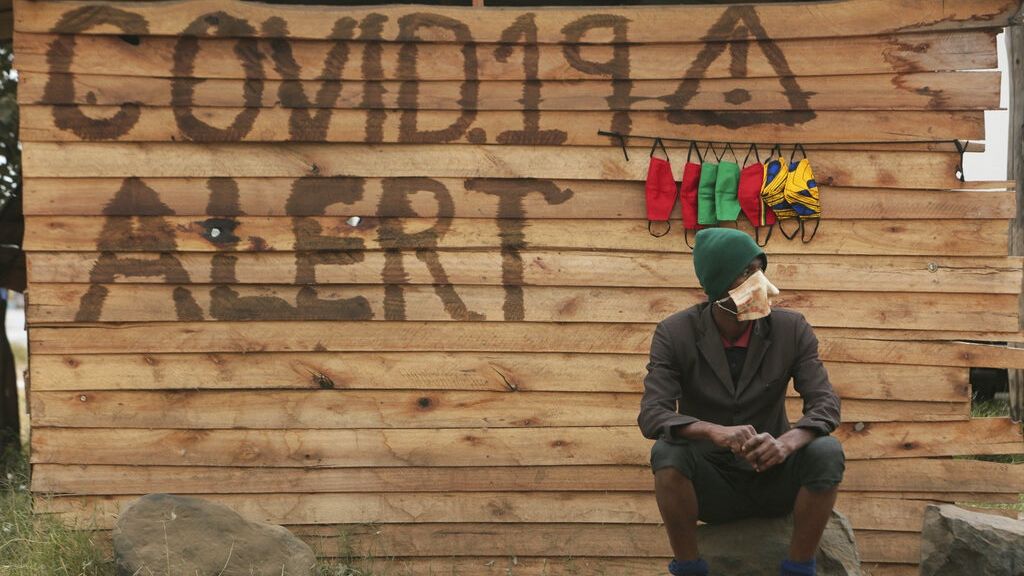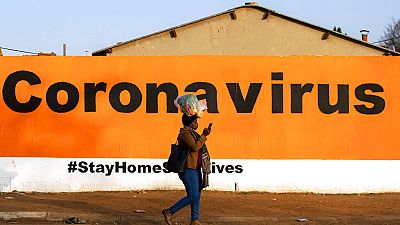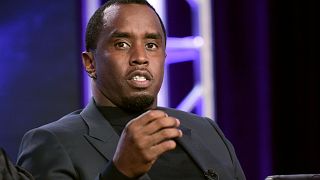Africa
The ongoing coronavirus pandemic that started in China in December last year has disrupted life across the world. Measures like travel restrictions, border closures and stay-at-home orders have been implemented to prevent the spread of the virus.
The new normal that has included working from home and wearing face masks in public has also seen the public use words like social distancing and quarantine more frequently.
In this article, using the A-Z alphabet format, we list words that have become part of our daily vocabulary as we learn to live with the virus.
Asymptomatic: refers to someone who has the disease but does not show any symptoms.
Other words here are antibodies and Artemisia, used to make the Madagascar’s self-proclaimed herbal covid treatment.
Ban: Several countries used bans to prevent the spread of Covid-19 from what they deemed high-risk areas. These included travel bans and extended to bans on social gatherings and movement at certain hours.
Contact-tracing: the process of identifying and testing people who have been exposed to a contagious disease like the coronavirus. This is done to prevent onward transmission.
Other words here include curfew which was imposed in many countries as they declared states of emergency.
Distancing: social or physical distancing is a key preventive measure that has been adopted in many countries. It simply refers to keeping a safe distance between oneself and other people. Avoiding crowded areas is also a component of this strategy.
Other words here include drive-through testing and droplet transmission.
Essential services: These referred to tasks that are needed to ensure an individual or community’s health, safety and survival for example getting food or medicine. During lockdowns imposed by several governments, the tag was also extended to functions required to facilitate government continuity and secure welfare of the people.
Other terms here are epicenter, endemic and epidemic among others.
Flatten the curve: This refers to slowing the rate of infection (reduce peak number of cases), so that the healthcare system is not overwhelmed i.e hospitals treat fewer people over time.

Garlic: Garlic was one of many natural remedies that were touted as having ability to prevent, treat or cure the coronavirus. There is however no scientific proof to back these claims.
A claim that 5G caused the coronavirus has also been repeatedly debunked.
Herd immunity: refers to a scenario where enough people in a community have become immune to a disease, either through exposure or via a vaccine. A few countries like Sweden adopted this approach.
Other words are hand hygiene, hydroxychloroquine and home (stay home).
Incubation: this is the period between when a person gets infected with a disease and when they start showing symptoms. The Covid-19 incubation period of 2-14 days guided key decisions like lengths of quarantines.
Other terms here include ICU beds, index cases, isolation, infodemic, and immunity.
Job loss: measures taken to prevent the spread of Covid-19 including lockdowns, states of emergency and curfew triggered mass lay-offs, salary cuts and business closures.
Kits: as health experts highlighted testing as a key strategy in fighting the pandemic, testing kits became a very valuable and soon rare asset for healthcare systems around the world.
Lockdown: general term used to describe restrictions on movement, work and travel on all people in a community. Many countries in Africa imposed some form of lockdown in the fight against coronavirus.
Masks: Wearing face-masks in public has become a generally accepted measure of preventing the spread of Covid-19. Indeed, in countries like Uganda, it is now criminal not to wear a face-mask when one steps out of one’s house.
.embed-container { position: relative; padding-bottom: 56.25%; height: 0; overflow: hidden; max-width: 100%; } .embed-container iframe, .embed-container object, .embed-container embed { position: absolute; top: 0; left: 0; width: 100%; height: 100%; }
N95: a special respirator that filters out infectious viral pathogens, so the wearers cannot inhale them. High demand for these special surgical masks caused shortages for the people who needed them most, healthworkers.
The Novel strain is another word we have come to learn.
Outbreak: used when many people in a community suddenly become ill. The coronavirus pandemic started out as an outbreak in the Chinese city of Wuhan.
Pandemic: used when an illness is affecting a very large population, having spread from a community to several countries across the world. The coronavirus epidemic was declared a pandemic by the World Health Organisation in March this year.
Personal protective equipment (PPE), patient zero and peak are some of the other words.
Quarantine: a measure used to prevent onward transmission of an illness by separating and restricting movement of people that have been exposed to a contagious disease. Many countries put in place quarantine facilities to monitor entrants into their territories.
Recovery: While the coronavirus has caused nearly half a million deaths globally, there are millions more who have survived the disease. For a person to be considered as having recovered from Covid-19, they should have gone through recommended treatment for symptoms and tested negative twice.
.embed-container { position: relative; padding-bottom: 56.25%; height: 0; overflow: hidden; max-width: 100%; } .embed-container iframe, .embed-container object, .embed-container embed { position: absolute; top: 0; left: 0; width: 100%; height: 100%; }
Sanitiser: Hand hygiene is a key strategy that’s been employed to slow the spread of Covid-19. The public has been advised to wash their hands with soap for about 20 seconds or use an alcohol-based hand rub or sanitiser.
Transmission: this refers to spread of the disease from one person to another. The common modes of transmission that many people have come to use and understand are droplet and community transmission.
Underlying conditions: refers to a medical problem that is chronic and requires long-term treatment. Such conditions may include heart disease, diabetes and lung disease. People with such conditions are at a higher risk of contracting the coronavirus and experiencing serious or critical illness since the chronic illnesses have already weakened their immune system.
Ventilators: a machine that takes over the breathing process for struggling patients. It does by delivering air into the lungs through a tube that is placed into the mouth or nose and down into the windpipe.
The lack of a treatment has also made the need for a vaccine critical, and to-date a number of trials are underway across the world.
WHO: The World Health Organisation (WHO) is the focal organisation that is leading the world’s efforts to fight the coronavirus. The United Nations agency provides guidance and support to countries on how to manage the pandemic.
.embed-container { position: relative; padding-bottom: 56.25%; height: 0; overflow: hidden; max-width: 100%; } .embed-container iframe, .embed-container object, .embed-container embed { position: absolute; top: 0; left: 0; width: 100%; height: 100%; }
Xenophobia: fear of getting infected with the coronavirus triggered discrimination against people perceived to be carriers. As the epicenter of the virus moved from China to Italy, Europe and the United States, nationals of these countries were treated with negative attitudes that in extreme cases became xenophobic attacks across the world.
YouTube: Digital platforms like YouTube, Zoom and TikTok emerged as go to places for information, videoconferencing and entertainment respectively, in the wake of stay-at-home orders imposed during lockdowns.
Zoonotic: Zoonotic diseases can be traced back to animals i.e exist in animals but can also affect human beings. The virus that causes Covid-19 is believed to have originated in bats and spread through other species before humans contracted it.
Compiled by: Daniel Mumbere
Africanews, digital journalist
@danmumbere













01:47
Chinese city of Xuchang is world's biggest producer of wigs
01:15
U.S. considers adding more African countries to travel ban
01:00
Renewed calls to end plastic pollution on World Environment Day
00:52
Bill Gates says most of his $200 billion fortune will go to Africa over next 20 years
Go to video
Africa’s First Multilingual Small Language Model Gets Even Smaller - Thanks to Top African Innovator
01:14
DR Congo Justice Minister under fire over $19M transfer